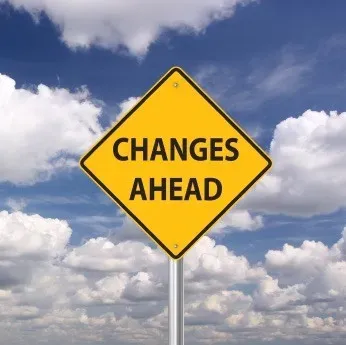Digital Governance 2020

The last decade was “interesting.” We became increasingly aware that the internet and the web can be dangerous places. I’m not going to trash the technologies that have led to so much information-sharing and innovation, but I will be one of the first in line to say that we need to do a better job of governing both the internet and web. Today’s web conflagration is only the accumulation of what individuals and organizations put online. That means that luckily for us, the capacity for solutions lies in many hands. I’ve said for years that I think digital workers need to take the lead — and I’m still saying it.
I know that digital workers are overwhelmed. Some are shell-shocked by what’s happening on the web, and others are angry and pointing fingers. In these states, it’s hard for people to know what to do. There are some extreme and grand personal actions that some of us are privileged enough to be able to take. If you work in a business that promotes unethical or unsafe use of the web, and you think you can get a job somewhere else so that you can pay your bills, then maybe you can quit. But not everyone is in that spot. So what do you do? You can try to improve your organization from within. There are some small actions that can go a long way.
If You Think Something, Say Something
On a day-to-day level, you can voice the concerns that you have in your head about how your organization operates online. Expressing your fears about questionable functionality early makes it easier for everyone. Once new content, products, and services are online, it’s harder to get your team members to hear your concern. You’ve wasted fiscal resources and the time of your colleagues.
Make Things That Add Value
A lot of what we make and put online is just stuff, and not mission-critical. Sometimes off-target initiatives are wrapped up in management ego or internal infighting and power struggles. Or a project might be spurred on by false deadlines and have no demonstrable value to the brand or the bottom line. Stop making so much stuff and start developing valuable and safely produced digital products and services.
Less Agility, More Intent
I gave a talk once about how agile development as it was manifesting in organizations might not be the best thing that ever happened to the web. I was told that I was old and didn’t get it.
Oh, I got it all right.
Generally speaking, there are few real shortcuts in life. Agile might get you a minimally viable product online fast, but it can be a rootless way to develop. Many organizations work in an agile development environment without referencing a digital strategy or without the grounding of policies that will help keep their organization operating in a way that is both profitable and safe. Agility without accountability to a sound organizational strategy and policy is how we get the types of situations that we see at Facebook and Twitter. Lots of organizations do no better than those two dot-com giants when it comes to data handling — they’re just not in the spotlight.
Govern Digital
We’ve seen, at scale, what happens when digital products and services are developed with no accountability to a strategy and to local and global policies. And digital workers have a front-row seat to the cacophony of content and technologies that proliferate in an organization when there are no digital standards in place. Take the time to define and implement a digital governance framework that will let everyone in the organization know who makes the rules for digital, what they are, and how to follow them — and when it’s okay not to.
Early this year, I’ll be releasing a digital governance fundamentals course. It’s a compliment to my book Managing Chaos: Digital Governance by Design. It’s a course that digital managers at all levels can use to start the process of defining a digital governance framework for their organization.
Hopefully, when we pull out of this decade, the global internet and the web, organizations, and people will be more intentional about governing our online spaces. It’s going to be a process and not a quick fix. Internet and web governance will only be a reflection of how well we govern ourselves in the “real” world, and organizational digital governance will reflect the nature of the collaborative relationships within the business. So work on your online experience. And consider this an invitation to improve your face-to-face relationships with the people in your organization. It all starts there, and it all begins with us.
